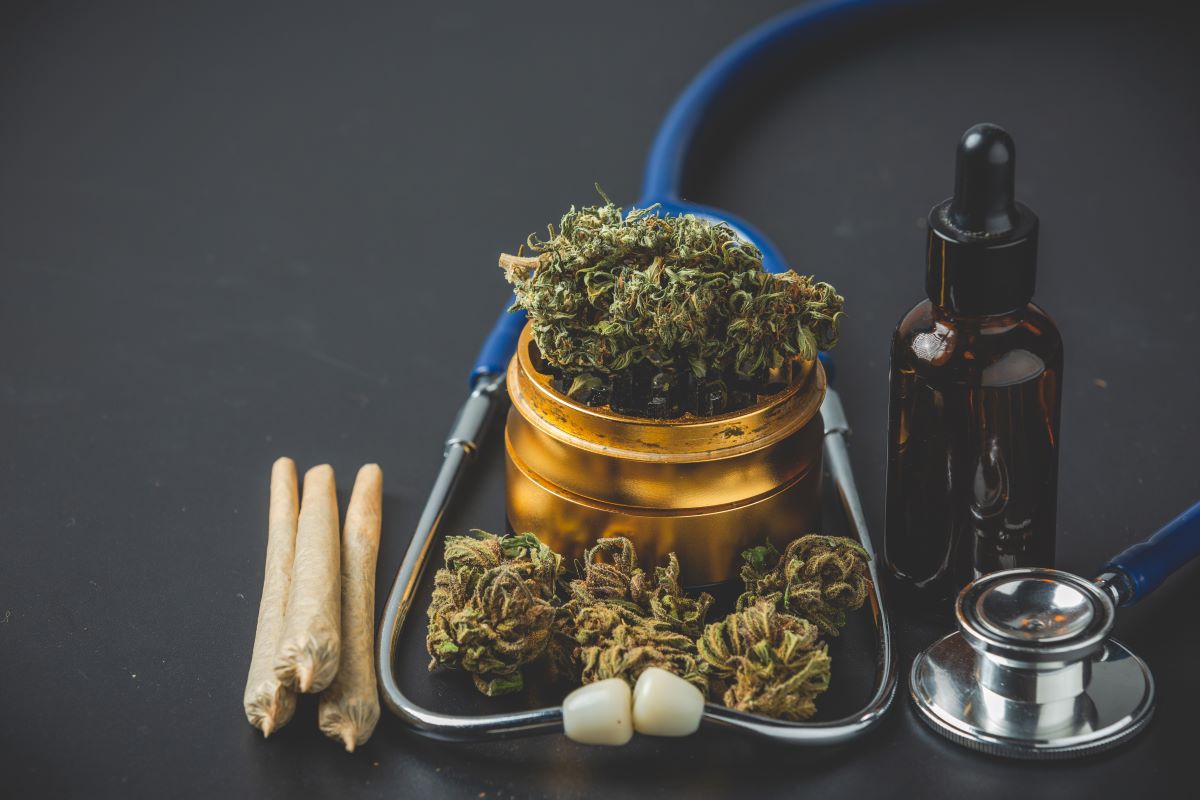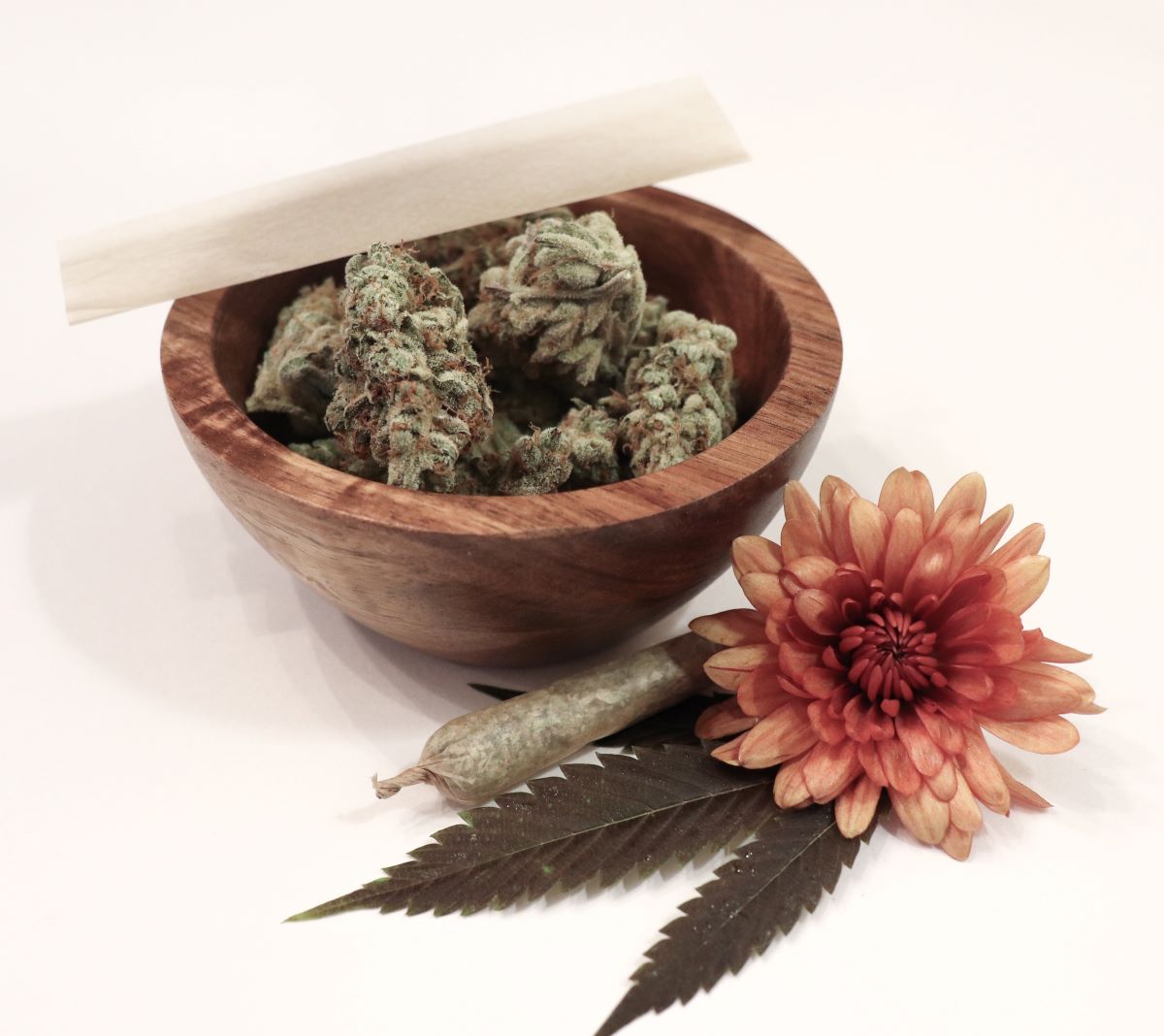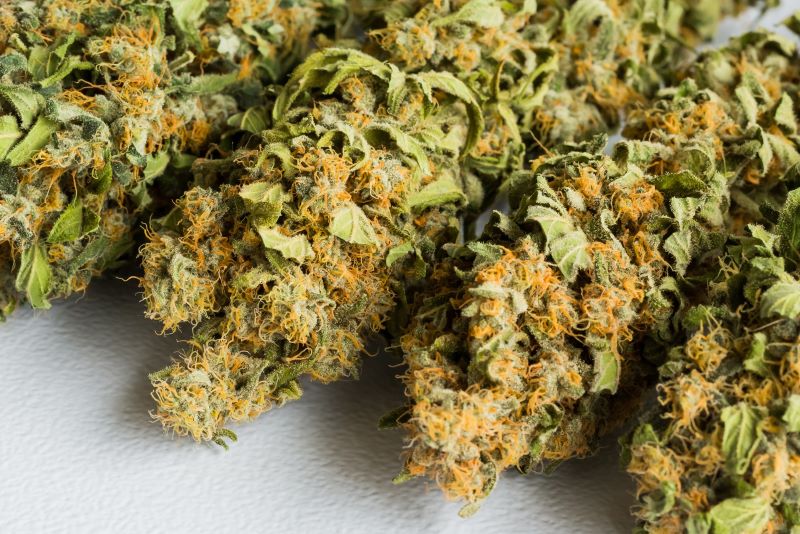Is Marijuana a Depressant? How It Impacts The Body
With marijuana’s rising prominence in medical and recreational discussions, the debate surrounding its classification and effects on the body intensifies.
While many categorize marijuana as a depressant, its multifaceted nature means it doesn’t fit neatly into one box. After all, its effects can range from calming relaxation to heightened alertness or even mild hallucinations.
So, is marijuana a depressant? Let us unravel the complexities of marijuana, debunk common myths, and equip ourselves with essential insights into this intriguing plant.
What Is a Depressant?
A depressant is a substance that primarily slows down the activity of the central nervous system. By doing this, it helps reduce feelings of stress, tension, and anxiety. Think of the central nervous system as the main control center of your body, governing everything from your breathing rate to your heartbeat and even your alertness levels.
Introducing a depressant into your system effectively ‘turns down the volume’ on this control center. The overall result is decreased bodily tension and heightened feelings of relaxation. That’s why a person might feel more at ease, mellow, and sometimes sleepy after consuming a depressant.
Alcohol is a classic example of a depressant. Have you ever noticed how you might feel more relaxed or sluggish after a few drinks? That’s the depressant action at work. Similarly, certain prescription painkillers have depressant qualities. They work to dull pain but also slow down other body functions, which can lead to feelings of drowsiness or calmness.

Is Marijuana a Depressant?
When people ask, “Is marijuana a depressant?” it’s crucial to understand that marijuana is complex. While often labeled as a depressant due to its calming effects, marijuana doesn’t fit neatly into a single category. One reason for the debate about “Is marijuana a stimulant or depressant?” is because it has properties of both, and the impact can vary based on various factors, including the specific strain and individual user.
The legal status of marijuana varies globally, with some countries and states embracing its medical and recreational use while others strictly prohibit it. In places where it’s legal, regulations often surround its cultivation, distribution, and consumption.
If considering marijuana, always be aware of the local laws and consult professionals. The acceptance of marijuana as a therapeutic agent is growing, but it’s crucial to be informed and ensure you’re making legal choices.
How is Marijuana as a Depressant Impacting Your Body?
Marijuana’s designation as a depressant primarily relates to its ability to slow down activity in the central nervous system. This manifests as muscle relaxation and a tranquil state of mind. THC, the primary psychoactive component in marijuana, binds to receptors in the brain. This binding creates feelings of euphoria, joy, and overall calmness.
Marijuana’s effects can be pretty subjective. Factors like individual body chemistry, tolerance levels, and mood during consumption can influence the experience. While some might find relief and calm, others might experience anxiety or paranoia. Thus, starting slow, especially if you’re new, can help gauge how marijuana affects you personally.
Marijuana Use for Mental Health Conditions
An increasing number of individuals are visiting their physicians to discuss using marijuana as medicine for mental health challenges. Studies have shown potential benefits in treating anxiety, depression, PTSD, and more. However, the journey with medical marijuana is individual.
While marijuana has various benefits, it’s not without risks. Just like with any substance, misuse can lead to adverse effects. Overdependence can lead to tolerance, meaning you’ll need more substance to get the same effects. Moreover, quitting after long-term use can lead to withdrawal symptoms like irritability, insomnia, and loss of appetite. It’s essential to always be informed and use marijuana responsibly.
Effects of Marijuana Use
To answer the question, is marijuana a depressant? It’s essential to understand that not all marijuana is created equal. There are primarily two strains, Sativa and Indica, each with unique effects.
Sativa strains are often associated with uplifting moods and energy, sometimes as stimulants.
On the other hand, Indica strains are more relaxing and can induce sleep, which is why they are commonly viewed as depressants.
Hybrid, a combination of both strains, offers a balanced effect. Depending on what you’re looking for, it’s always wise to choose the right strain for the desired impact.
If you are weary of the effects of medical marijuana on your body, it’s best to consult a medical marijuana doctor before trying it out.
Short-Term Effects
Shortly after consuming marijuana, users might notice elevated blood pressure and heart rate. The infamous “red eyes” and “munchies” (intense hunger) are also common short-term effects. Depending on the strain and consumption method, one may feel a sense of relaxation, drowsiness, or even heightened alertness and creativity.
Long-Term Effects
Consistent, long-term use of marijuana has been linked to memory challenges, specifically difficulty in forming new memories or recalling information. Chronic use can also lead to increased anxiety or paranoia in some people. From a physical standpoint, smoking marijuana can introduce irritants to the lungs, potentially leading to respiratory issues.

Can Marijuana Be a Stimulant or Hallucinogen?
While the question, “Is marijuana a stimulant or depressant?” is common, there’s another aspect to consider.
Marijuana is a complex substance, and its categorization as a depressant, stimulant, or hallucinogen can vary based on individual experiences and the strains used. Its potential as a therapeutic agent is undeniable, but like all substances, it’s essential to approach its use with caution, knowledge, and responsibility.
What works for one person might not work for another, so it’s essential to contact our professionals if you’re interested in exploring this path.
Stimulant Effects
Marijuana’s stimulant properties are pretty fascinating. While depressants slow the central nervous system, stimulants have the opposite effect. In the case of marijuana, this might manifest as increased energy, heightened alertness, or even euphoria. This is why some users claim they’re more creative or focused after using specific strains of marijuana.
Hallucinogenic Effects
Marijuana can sometimes act as a stimulant or hallucinogen, leading to altered sensory perceptions. This can result in users feeling sensations more intensely, seeing brighter colors, or even experiencing slight distortions in time. These effects, while not as pronounced as with traditional hallucinogens like LSD, do demonstrate the diverse range of experiences marijuana can produce.
Unraveling the Green Mystery
Marijuana remains a multifaceted substance, with effects spanning from calm relaxation to heightened creativity. As its prominence grows, understanding its diverse nature becomes paramount. Engage in informed dialogues, stay updated on research, and always prioritize responsible consumption for a safer and more enlightened experience.






